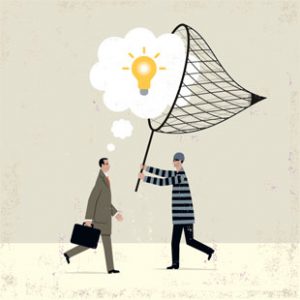 It’s a nasty, ugly word, isn’t it? Plagiarism. It rears up with shocking regularity in every writing circle – academia, journalism, fiction, biography. Every time I see a new case pop up in the romance or SFF writing communities, far too many people wail about their particular genre being plagued with it. It’s not true, of course. It’s everywhere. But there are some odd misconceptions about it and some predictable reasons why authors do it.
It’s a nasty, ugly word, isn’t it? Plagiarism. It rears up with shocking regularity in every writing circle – academia, journalism, fiction, biography. Every time I see a new case pop up in the romance or SFF writing communities, far too many people wail about their particular genre being plagued with it. It’s not true, of course. It’s everywhere. But there are some odd misconceptions about it and some predictable reasons why authors do it.
According to USLegal.com, “Plagiarism is taking the writings or literary ideas of another and selling and/or publishing them as one’s own writing. Brief quotes or use of cited sources do not constitute plagiarism.” (See what I did there? Citing the source? ;) )
The site goes on to assert that plagiarism in and of itself is not a crime, but that someone who commits plagiarism can be sued for fraud and/or copyright infringement. So the authorities aren’t going to take you away for it, but you may face some nasty lawsuits if you engage in it.
There are several types of plagiarism from verbatim (cut and paste of entire passages without changes and without acknowledging the source), to lifting selected phrases (where the plagiarist attempts to change just enough words to make it look unique), to paraphrasing (while keeping the same ideas and structure.)
Theft of ideas is a more difficult plagiarism accusation and often where misconceptions fester. J.K. Rowling faced several challenges regarding Harry Potter and the wizarding world she created, some of them from journalists who saw resemblances to characters in previous works, and some from writers who claimed Rowling had stolen not their words but their ideas. (See here for details on the Stouffer case, where the writer claimed to have created the word “muggle” and then was found to have inserted the word into documents after the fact.)
Theft of ideas in fiction is difficult to build a case for unless the stolen idea is incredibly unique. Use of similar themes, tropes, archetypes, real-life situations – these are NOT plagiarism. A boy with glasses who learns magic is not unique to one work of fiction, for instance. An author writing about real-life events that another author has also explored is not plagiarism.
That said, actual plagiarism is a terribly underhanded way for an author to make money and today’s readers tend to be widely read in their chosen genres, with long memories. Between software to detect plagiarism and the savvy readership, most authors who engage in intellectual theft get caught.
So why do they do it? Why expose yourself to what could be a career-ending move? Please keep in mind that plagiarism is intentional and deliberate. You can’t trip over a manuscript and accidentally insert someone else’s words. Also keep in mind that reasons are not the same as excuses, and it’s the farthest thing from my mind to excuse this behavior. And yet…it still makes people curious.
Time – which can manifest in looming deadlines or changes to the author’s life that severely limit writing time. Even business-conscious self-publishers set deadlines for themselves these days, and those deadlines can cause enormous amounts of stress.
Production – the author sees colleagues who are able to produce at greater speed or consistency. The perception that the slower author is somehow lacking, or less than, can sometimes drive an author to take someone else’s work.
Monetary Desperation – the last three books haven’t sold well, the mortgage is due, something has to change. If the author has relied heavily and solely on royalty income, or even if the author feels they’re not making the level of income they want/deserve, then, for some, plagiarism becomes a siren song.
No One Will Know – the author steals from a little-known source (or what they believe is a little-known source) such as fanfiction and thinks no one will make the connection. Or they mistakenly believe that stealing something that was free is perfectly fine (it is not – it’s still plagiarism – see academia for lots of examples.)
There are probably others, but these are the ones I’ve seen cited in apologies (read: lists of excuses.) If you do read something that feels like deja vu, investigate, bring it to the publisher with sources and passages cited. Make sure you’re right because this is a serious accusation. Most publishers will act quickly. But please don’t make unfounded accusations because of similarities in theme or subject matter.
Is it more prevalent now than it was fifteen years ago? Yes. No. Sort of. Access to information, self-publishing, and the sheer number of works being published all contribute to more cases of plagiarism and greater visibility when it’s uncovered. But keep in mind it’s an old plague, it’s everywhere, and it doesn’t reside in any one genre more than another.


